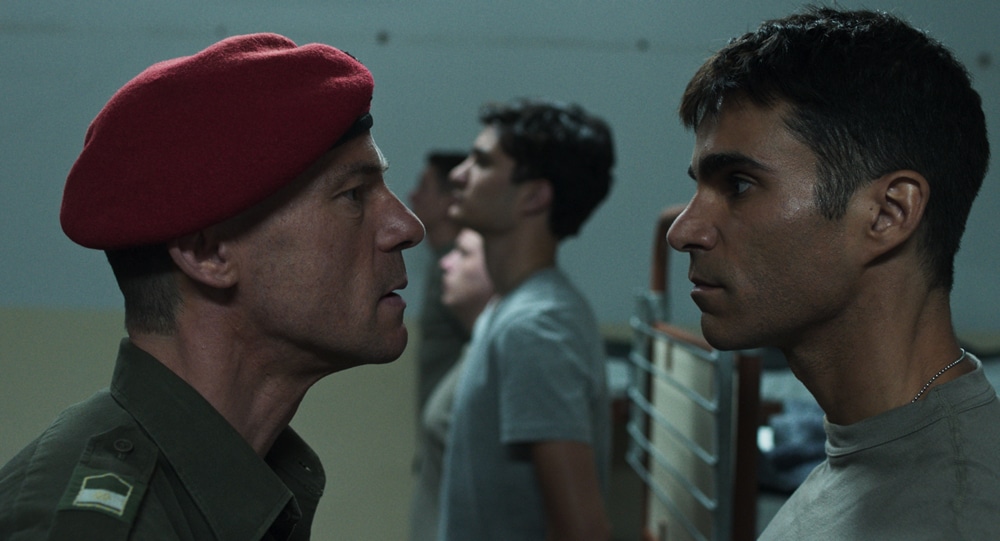Eismayer is a powerful Austrian drama directed by David Wagner, first released in 2022. The film presents an emotionally charged and deeply human story set against the rigid backdrop of military discipline, exploring identity, repressed desire, and the transformative power of love. Inspired by real-life events, Eismayer confronts the tension between personal truth and institutional expectations with remarkable sensitivity and strength.
The story follows Sergeant Major Charles Eismayer, portrayed by Gerhard Liebmann, a decorated drill instructor known for his intimidating presence and unwavering dedication to military order. Eismayer is a man deeply respected—and feared—within the Austrian Armed Forces, embodying a hyper-masculine ideal that leaves no room for emotional vulnerability. However, beneath his stern exterior lies a secret: Eismayer is gay, and he has gone to great lengths to hide his identity in a conservative, macho environment.
The arrival of Mario Falak, a new recruit played by Luka Dimić, disrupts this fragile balance. Falak is openly gay, confident, and unashamed of who he is—qualities that immediately challenge Eismayer’s carefully constructed facade. Their relationship begins with tension and resistance but evolves into mutual understanding and, eventually, love. Eismayer finds himself at a crossroads: continue living a lie or take the risk of embracing his truth, even if it means losing the life and respect he has built.
The film’s strength lies in its performances. Gerhard Liebmann captures the inner conflict of Eismayer with nuance, portraying both the ferocity of his military persona and the tenderness he tries to suppress. Luka Dimić is equally compelling as Falak, radiating warmth, integrity, and quiet strength. Their dynamic is central to the film’s emotional impact, and their chemistry feels authentic and earned.

David Wagner’s direction is understated but effective. He avoids melodrama, allowing the emotional weight of the story to emerge organically. The cinematography captures the starkness of military life while contrasting it with moments of personal vulnerability and intimacy. The tone remains restrained throughout, making the moments of emotional release feel all the more powerful.
Eismayer is not just a love story—it’s a story of courage, self-liberation, and defiance against systemic repression. The film challenges preconceived notions of masculinity, discipline, and what it means to be strong. It offers a poignant reminder that true strength lies not in domination or control, but in honesty and emotional authenticity.
The film was widely acclaimed, winning several awards at international film festivals and receiving praise for its bold subject matter and moving performances. Its real-life inspiration adds another layer of impact, culminating in a final image of the actual Eismayer and Falak together, married and in uniform, symbolizing a quiet revolution within a historically rigid institution.

In its 87-minute runtime, Eismayer leaves a lasting impression—a tender, thought-provoking meditation on love, identity, and the cost of silence. It is both an intimate character study and a landmark in queer cinema.
-1751870108-q80.webp)


